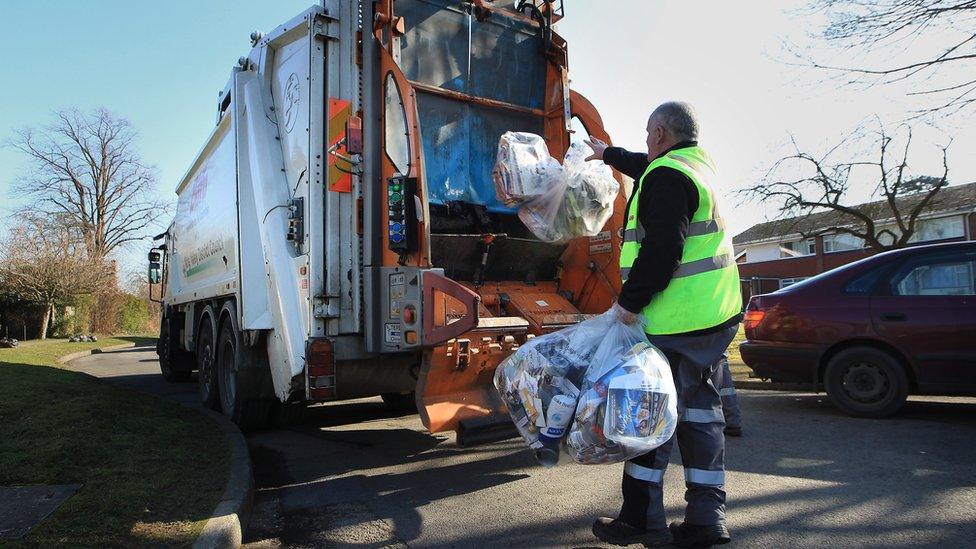Recycle week: Three eco-warriors share their tips
- Published
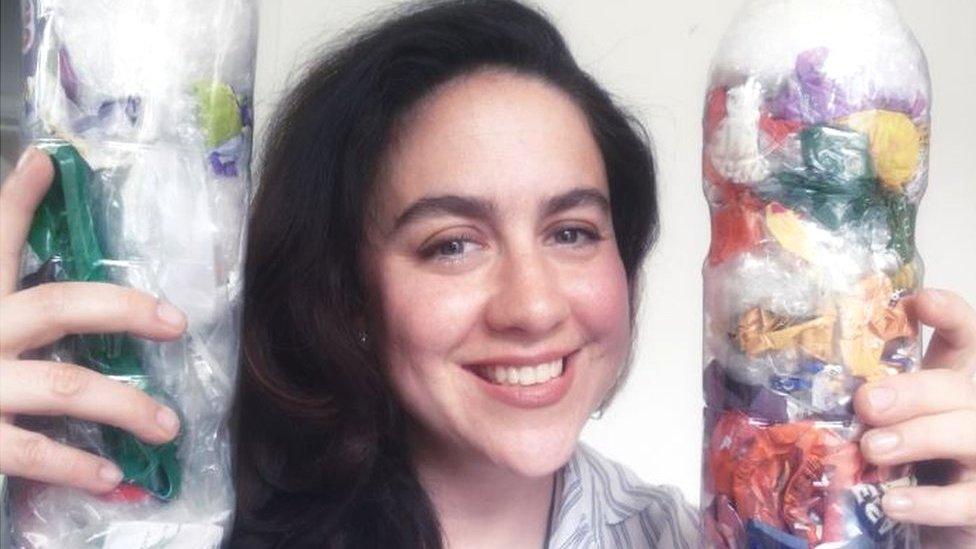
Dr Lorena Nessi fills bottles with waste plastic and donates them as building blocks called Ecobricks
Recycling and how to cut down on single-use plastic has become a hot topic of conversation in recent years. Plenty of people get rid of their cardboard, glass and tins responsibly, but how do you go the extra mile? Three women championing recycling in their corners of England share their top tips.
Get scheming
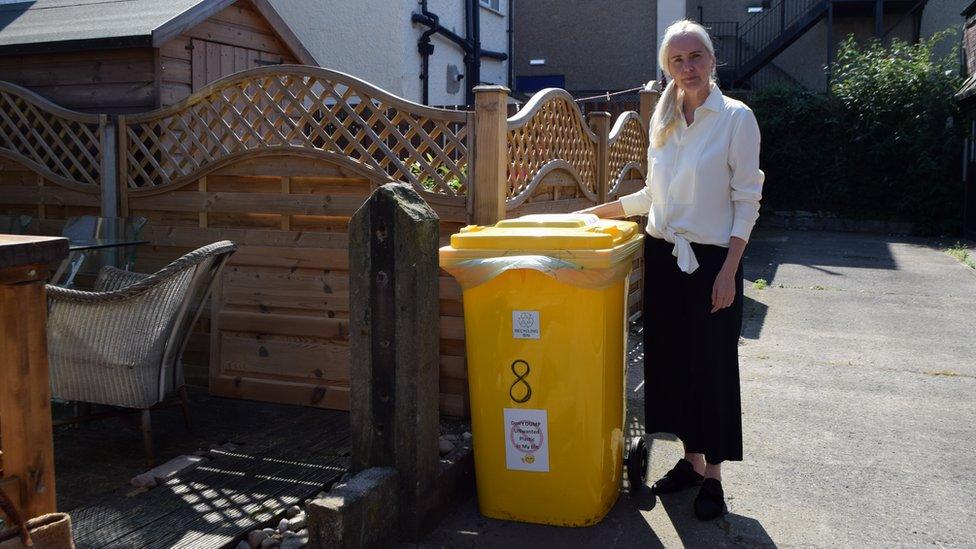
Erika Shilling started a plastic recycling scheme for her town
Erika Shilling felt so strongly about recycling plastic she started a scheme for the town of Ilkley in West Yorkshire.
The 51-year-old uses Terracycle, a company that accepts certain recyclable plastics by post that would otherwise go to landfill, and encourages people to put them in a yellow wheelie bin in the alley behind her house.
"I thought, I can't just keep throwing my stuff away knowing what damage is being done," she said. "I thought I'd become a public drop-off point and let the whole of Ilkley recycle their stuff too.

She collects plastics like crisp packets to save them from the landfill
Ms Shilling said the most popular items dropped off are crisp packets, toothpaste tubes, toothbrushes and hair colouring kits.
"I collect the rubbish, then I take it out and separate it into the different types and send it off to the different recycling schemes I've joined.
"Terracycle pays the postage and my local Tesco gives me boxes to send it off in. I'm now looking at how we can expand plastic recycling in Ilkley and get more people involved."

Look at the problem
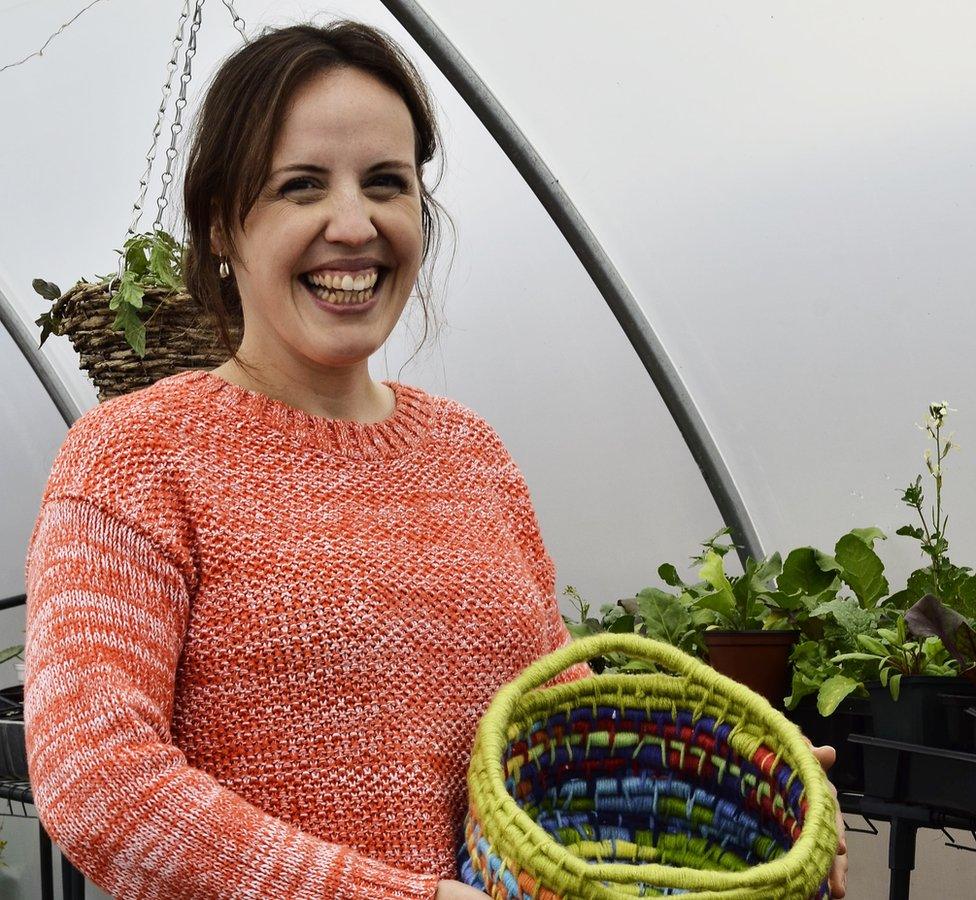
Claire Mills makes waste plastic into yarn baskets
Claire Mills runs Rubbish Baskets, a course in village halls and homes that teaches people how to turn waste plastic into yarn baskets.
"My children have learnt a lot since I have been making the baskets," said the 38-year-old from Pitstone, Buckinghamshire.
"I try and teach them how everything takes energy to make, so the more we use something the better it is for the environment, but the less we use in the first place the better still.
"I'm still working on teaching them that recycling their old toys by passing them on to other children is a really good idea but they're not convinced on that one."
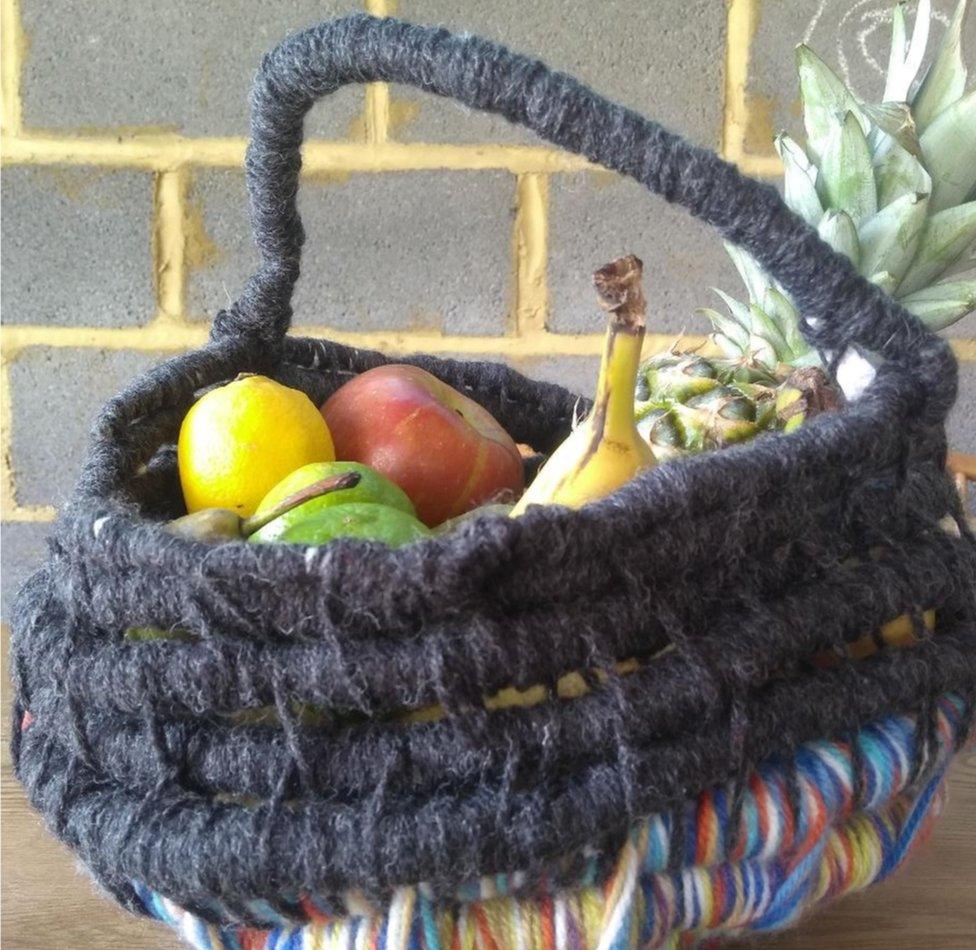
She says she tries to teach her children that everything takes energy to make
Ms Mills also cuts up her children's old school shirts to make cleaning cloths and takes plastic tubs to the shops to collect her groceries in.
She said society needed to bin its "out of sight, out of mind" approach to waste and that changing language could be the key to changing our behaviour.
"Say you're 'sending it to landfill' - because 'throwing away' suggests rubbish is magically disappearing and is no longer our problem," she added.

Tips from Recycle Now
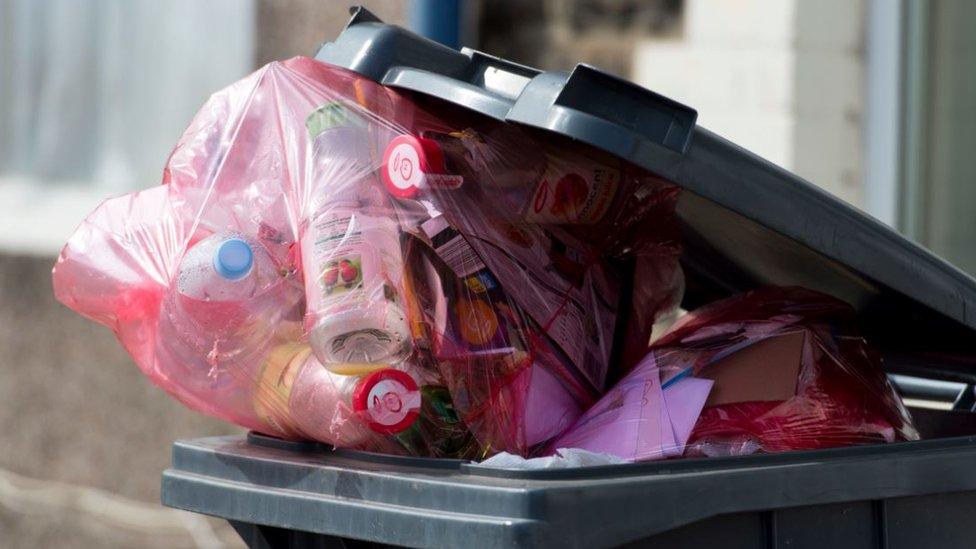
Put an extra bin near to bedrooms and bathrooms to collect recycling outside of the kitchen
Use an online recycling locator tool, external to find out what you can and cannot recycle in your area
Keep your recycling bin next to the main bin so you can take out the rubbish and recycling at the same time
Make recycling part of your supermarket trip and "drop when you shop" at recycling points
Use old washing up water to rinse bottles and jars before recycling

The building blocks of change

Dr Lorena Nessi keeps a reusable coffee cup to hand
Dr Lorena Nessi is launching PastPlastic, external, a business to help people go plastic-free with alternatives to disposable household items.
She fills bottles with waste plastic like bags, crisp packets, straws and cling film before donating to a not-for-profit enterprise called Ecobricks, external, which uses reusable building blocks.
"Coincidentally my daughter's school became involved in a project with the local supermarket to make Ecobricks," said the sociologist, who specialises in culture and consumption.
"The children made enough bricks to build an animal shelter for a farm in Chipping Norton. After the project was over I carried on and now I go around collecting Ecobricks and I take them to a collection point near Bristol.
"Once you see how much you can fit inside a bottle you will realise how much plastic you are using."

The animal shelter was made using Ecobricks
Dr Nessi, from Great Rollright in Oxfordshire, packs lunches to avoid buying pre-packaged food and carries a reusable coffee mug with her.
"We need to think about the items we are choosing as consumers and how we're going to put them back into the environment," she said.
"Try to start with small changes for a week and see how you get on."
- Published19 August 2019
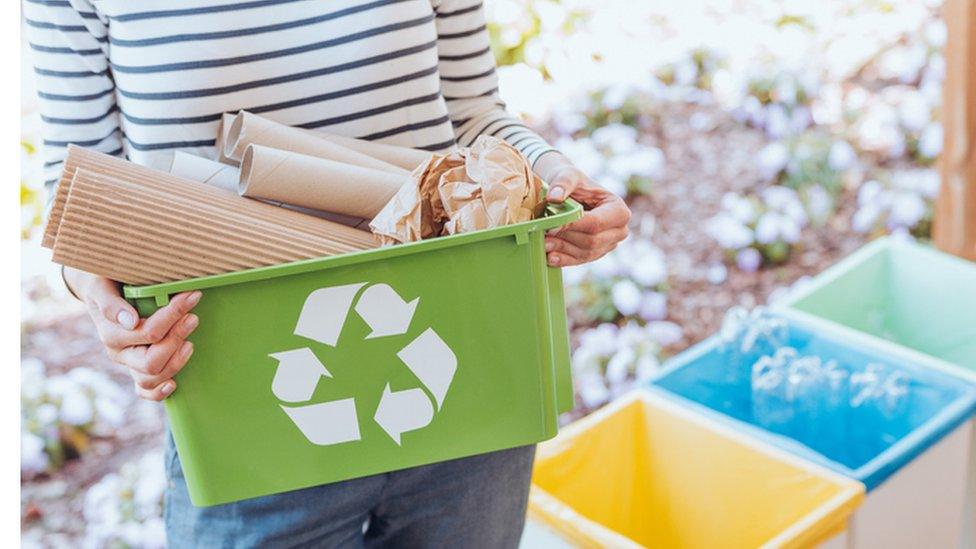
- Published22 March 2019
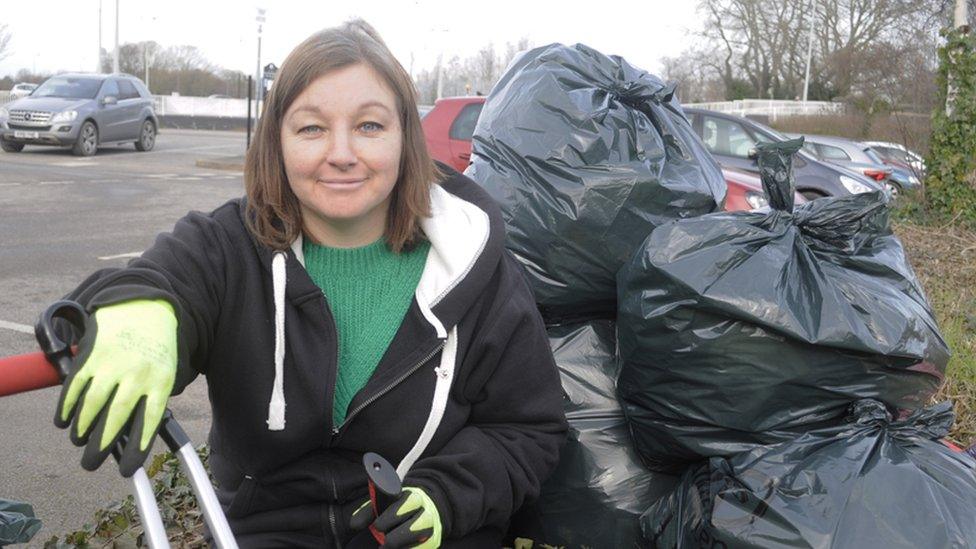
- Published18 December 2018
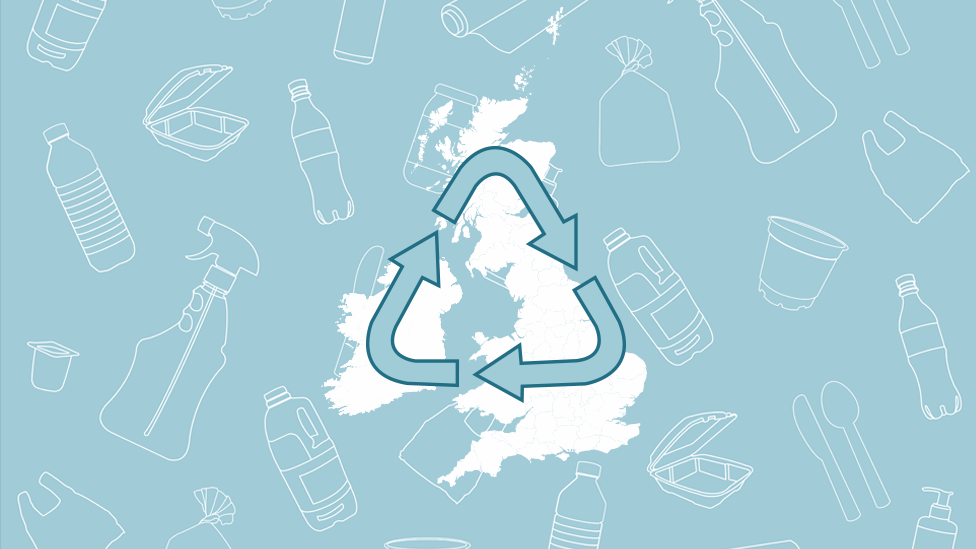
- Published18 December 2018
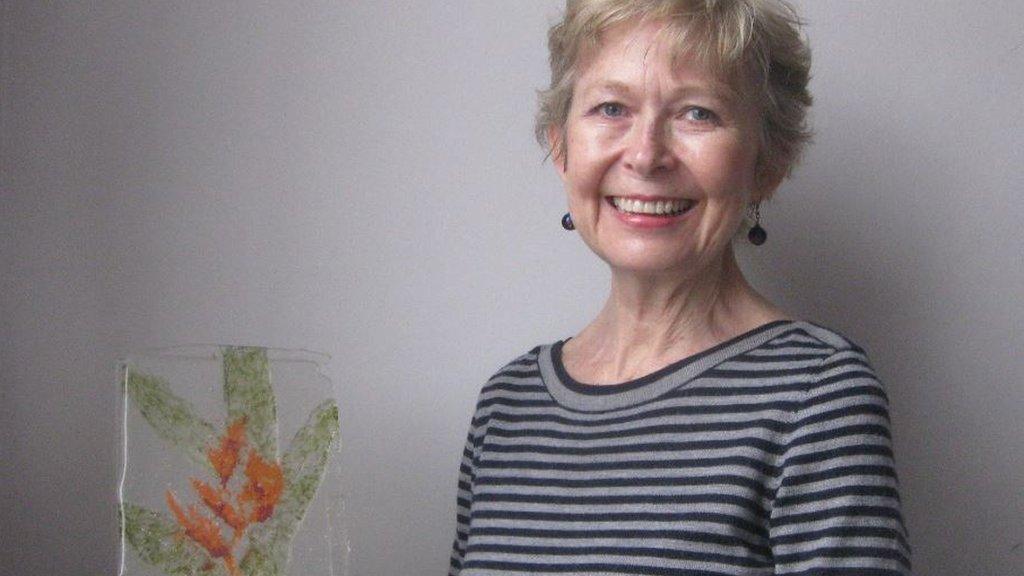
- Published1 March 2018
